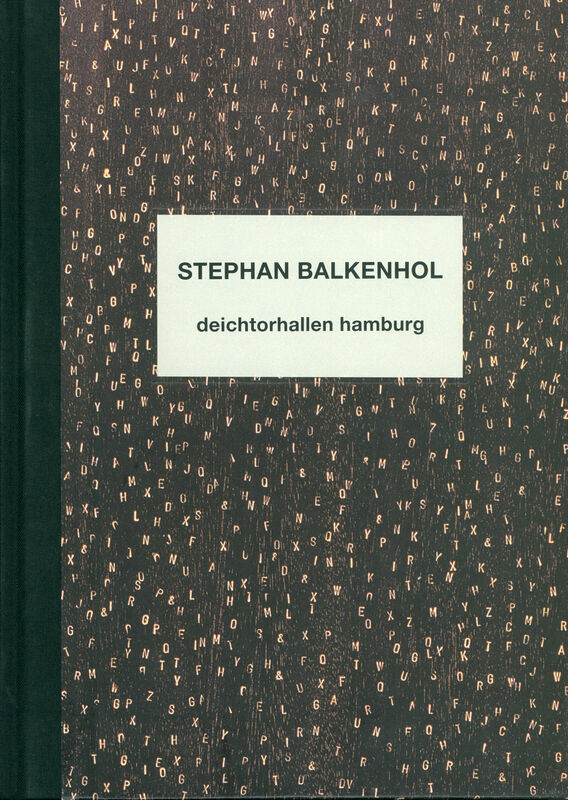Contact
art book cologne GmbH & Co. KG
Deutzer Freiheit 107
50679 Köln
Germany
Opening hours (office and showroom):
Monday to Friday 8 – 17
info@artbookcologne.de
Phone: +49 221 800 80 80
Fax: +49 221 800 80 82
About us
art book cologne, founded by Bernd Detsch in 1997, is a wholesale company and specializes in buying and selling high quality publications in art, art theory, architecture, design, photography, illustrated cultural history and all related subjects internationally. Our team includes specialists in art, culture, music, book trade and media but in spite of our diversity we have one common ground: the enthusiasm for unique art books.
We purchase remaining stocks from museums, publishers and art institutions. We sell these remainders to bookstores, museum shops, and art dealers all over the world.
Stephan Balkenhol
| Publisher | Snoeck |
| Year | 2008 |
| Cover | Hardcover |
| Language | English |
| ISBN | 978-3-936859-56-0 |
| Pages | 192 |
| Weight | 698 g |
| Illustrations | with num. ills |
| More | |
| Contributors | R. Fleck, T. Macho, M. Nolte et al. |
| Type of book | Exhib'publication |
| Museum / Place | Deichtorhallen Hamburg |
| Article ID | art-09083 |
Stephan Balkenhol first exhibited his figurative sculptures in the early 1980s, flying in the face of the dominant trends of minimalism and conceptual art. Today, his casual and undistinguished “guys and gals” have a contemporary resonance that has gained him high profile on the international art scene.
Born in 1957 in Fritzlar, Germany, he studied art in Hamburg with Ulrich Rückriem. Balkenhol rebelled against Rückriem's mathematically precise aesthetic. Traveling throughout Europe after graduation, he studied the sculptural traditions of the past and found his greatest affinity was for the art of ancient Egypt with its “… fascinating aura of eternity and tranquility.”
Balkenhol's figures are a kind of twentyfirst century “everyman” – neither idealized nor individualized. The artist makes these figures from soft wood (poplar or African wawa) cut with a power saw, hammer, and chisel creating rich surfaces where every mark of the chisel is visible. Calling to mind the great tradition of German figurative sculpture in wood and the expressionist heritage of the Germans, Balkenhol's people are curiously devoid of emotion and have been described as “German Expressionism without the expressionism.”
The catalogue was conceived by Stephan Balkenhol. He structured it as a virtual encounter of authors who relate to his sculptural œuvre in very different, highly personal ways. The essays, most of which were written especially for this catalogue, provide a picture of the open history of the interpretation an influence of his sculptural œuvre.

